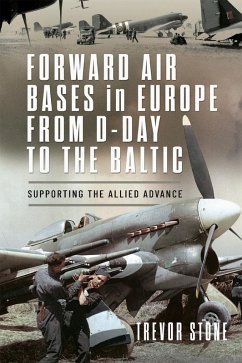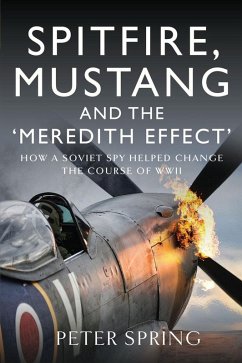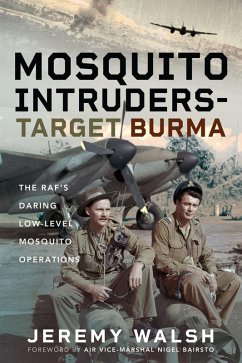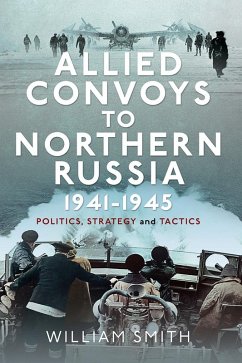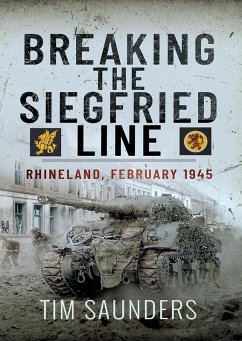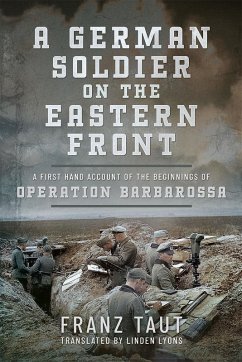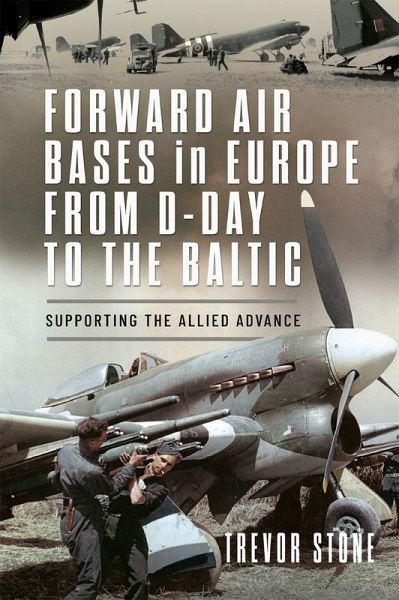
Forward Air Bases in Europe from D-Day to the Baltic (eBook, PDF)
Supporting the Allied Advance

PAYBACK Punkte
4 °P sammeln!
The largely sea-borne invasion of Northern France in June 1944, Operation Overlord, is acknowledged as one of the key actions which hastened the end of the Second World War. The RAF played a vital part in the landings. It then supported the subsequent advance of Montgomery's 21st Army, and the Allies as a whole, through France, Belgium, Holland and into Germany. Following the breakout from the Normandy bridgehead in early August 1944, the RAF's Second Tactical Air Force moved forward in support of the troops, occupying a number of temporary airfields as it went. The ground support for this ope...
The largely sea-borne invasion of Northern France in June 1944, Operation Overlord, is acknowledged as one of the key actions which hastened the end of the Second World War. The RAF played a vital part in the landings. It then supported the subsequent advance of Montgomery's 21st Army, and the Allies as a whole, through France, Belgium, Holland and into Germany. Following the breakout from the Normandy bridgehead in early August 1944, the RAF's Second Tactical Air Force moved forward in support of the troops, occupying a number of temporary airfields as it went. The ground support for this operation was complex, a situation that was exacerbated by the fact that much of it had to be highly mobile. The advance, however, was rapid and soon ran into problems as the supply lines grew longer by the day. The planners had envisaged that capturing the Belgian port of Antwerp would eventually enable them to bring in vitally needed supplies much further north on the Continent. Although the city and its port were liberated in September 1944, the port's route to the sea along the River Scheldt was still controlled by German forces. It took nearly three months until this was resolved, and the port opened for business. Until then, in the RAF's equivalent of the US Army's famed 'Red Ball Express', it was some 300 miles by road from Normandy with the Second Tactical Air Force largely reliant on the Army for transporting its needs. For an air force needing large volumes of fuel and ammunition, demand soon began to outpace supply. A number of emergency measures were put in place to keep the aircraft operational, which saw the RAF resorting to the use of its heavy bombers to fly in supplies. Even when Antwerp was up and running, supplying the Second Tactical Air Force remained a hand-to-mouth affair right through until the enemy's surrender in May 1945. In Forward Air Bases in Europe from D-Day to the Baltic the author explores the challenges of supporting a mobile air force in those uncertain days as Hitler's forces were retreating to their homeland. As the Allies found, things can go badly wrong when thinking loses touch with the art of the possible - logistics. In the end, miraculously, it worked, but it was a close-run thing.
Dieser Download kann aus rechtlichen Gründen nur mit Rechnungsadresse in A, B, BG, CY, CZ, D, DK, EW, E, FIN, F, GR, HR, H, IRL, I, LT, L, LR, M, NL, PL, P, R, S, SLO, SK ausgeliefert werden.




